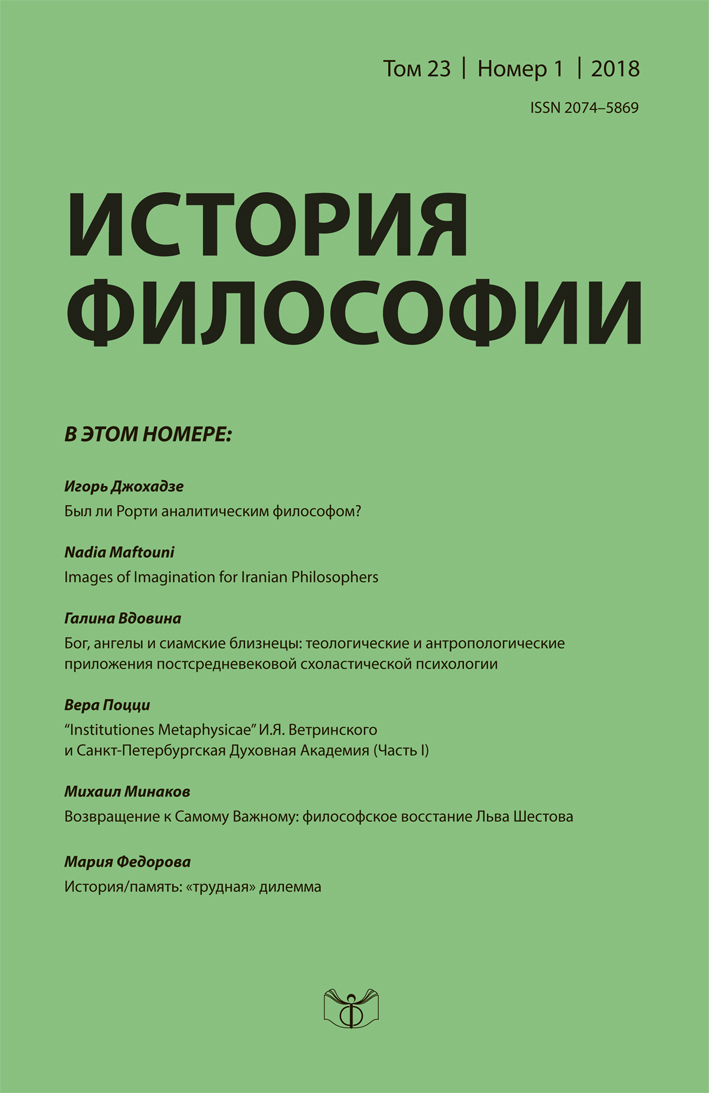Живой Бог русских философов
Ключевые слова:
«смерть Бога», сакральное, мистериальное, Н.Н. Ростова, русская религиозная философия, Ж. Батай, П.А. Флоренский, философия культа, страх БожийАннотация
Рецензируемая книга Н.Н. Ростовой «Изгнание Бога. Проблема сакрального в философии
человека» посвящена теме «смерти Бога» и связанной с ней проблеме «смерти человека».
Согласно автору, в европейской мысли понятие Бога оказалось вытесненным секулярной категорией сакрального, которое характеризуется как безличное, имманентное и амбивалентное. Как подчеркивает Ростова, вместе с Богом исчезает и человек, т. е. сознание, поскольку
Бог является формой и структурой, упорядочивающими хаос человеческой субъективности.
С утратой этой формы субъективность рассеивается и сознание перестает существовать. При
этом речь не идет об исчезновении человеческого, но только человека; утраченное сознание
заменяется потоком субъективных эмоций и аффектов. Дискурс сакрального, будучи «отражением самосознания научной эпохи», предполагает согласующиеся с эволюционизмом
онтологию и антропологию непрерывности, подразумевающие, что бытие и существование
человека ограничены имманентной сферой. В противоположность западной традиции русская философия, по мнению Ростовой, основывается на традиционном понимании Бога как
единственной трансцендентной живой и конкретной истины. Русская философия – это философия культа, «тотально освещающего реальность», философия всеединства и соборности,
выводящих человеческую субъективность из замкнутости. В отечественной философской
мысли преобладают онтология и антропология радикальных «разрывов», подразумевающие
мистериальное взаимодействие трансцендентного и имманентного, конечного и бесконечного, абсолютного и относительного. Если в западной традиции Бог оказался «изгнан», подобно
бесам, за негуманность, нетерпимость и нетолерантность, то, по мнению автора, для отечественной философии Бог остается основой иерархии, разделения, неравенства, порядка и
сознания. Книга Н.Н. Ростовой построена на достаточно схематичном противопоставлении
европейской философии, для которой характерен дискурс сакрального, русской мысли, представленной как философия культа. Автор резко критически относится к западной традиции и
апологетически – к отечественной, хотя ни та, ни другая не являются однородными.

